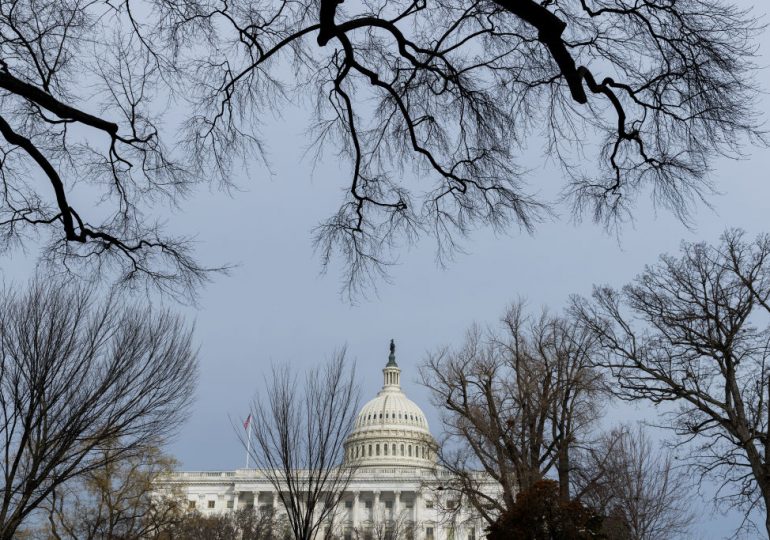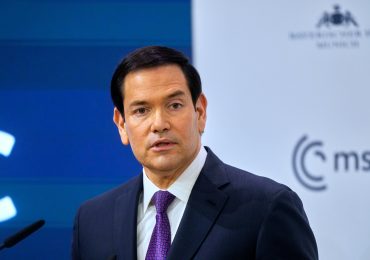(WASHINGTON) — Congress sent President Joe Biden a short-term spending bill on Thursday that would avert a looming partial government shutdown and fund federal agencies into March.
The House approved the measure by a vote of 314-108, with opposition coming mostly from the more conservative members of the Republican conference. Shortly before the vote, the House Freedom Caucus announced it “strongly opposes” the measure because it would facilitate more spending than they support.
[time-brightcove not-tgx=”true”]
Nevertheless, about half of Republicans joined with Democrats in passing the third stopgap funding measure in recent months. The action came a few hours after the Senate had voted overwhelmingly to pass the bill by a vote of 77-18.
The measure extends current spending levels and buys time for the two chambers to work out their differences over full-year spending bills for the fiscal year that began in October.
The temporary measure will run to March 1 for some federal agencies. Their funds were set to run out Friday. It extends the remainder of government operations to March 8.
Speaker Mike Johnson, R-La., has been under pressure from his right flank to scrap a $1.66 trillion budget price tag he reached with Senate Majority Leader Chuck Schumer earlier this month. Rep. Chip Roy, R-Texas, said the continuing resolution passed Thursday will facilitate that agreement.
“It’s Groundhog Day in the House chamber all the time, every day, yet again spending money we don’t have,” Roy said.
Johnson has insisted he will stick with the deal, and moderates in the party have stood behind him. They say that changing course now would be going back on his word and would weaken the speaker in future negotiations.
Rep. Rosa DeLauro, the ranking Democrat on the House Appropriations Committee, said Americans expect Congress to govern and work in a bipartisan fashion.
“Some of my colleagues would see that this government would shut down and don’t care how hurtful that would be,” DeLauro said.
House Republicans have fought bitterly over budget levels and policy since taking the majority at the start of 2023. Former House Speaker Kevin McCarthy, R-Calif., was ousted by his caucus in October after striking an agreement with Democrats to extend current spending the first time. Johnson has also come under criticism as he has wrestled with how to appease his members and avoid a government shutdown in an election year.
“We just needed a little more time on the calendar to do it and now that’s where we are,” Johnson said Tuesday about the decision to extend federal funding yet again. “We’re not going to get everything we want.”
Most House Republicans have so far refrained from saying that Johnson’s job is in danger. But a revolt of even a handful of Republicans could endanger his position in the narrowly divided House.
Virginia Rep. Bob Good, one of eight Republicans who voted to oust McCarthy, has been pushing Johnson to reconsider the deal with Schumer.
“If your opponent in negotiation knows that you fear the consequence of not reaching an agreement more than they fear the consequence of not reaching an agreement, you will lose every time,” Good said this week.
Other Republicans acknowledge Johnson is in a tough spot. “The speaker was dealt with the hand he was dealt,” said Kentucky Rep. Andy Barr, noting the constraints imposed by the party’s slim majority.
The short-term measure comes amid negotiations on a separate spending package that would provide wartime dollars to Ukraine and Israel and strengthen security at the U.S.-Mexico border. Johnson is also under pressure from the right not to accept a deal that is any weaker than a House-passed border measure that has no Democratic support.
Johnson, Schumer and other congressional leaders and committee heads visited the White House on Wednesday to discuss that spending legislation. Johnson used the meeting to push for stronger border security measures while Biden and Democrats detailed Ukraine’s security needs as it continues to fight Russia.
Biden has requested a $110 billion package for the wartime spending and border security.
___
Associated Press writers Farnoush Amiri and Lisa Mascaro contributed to this report.
Leave a comment








